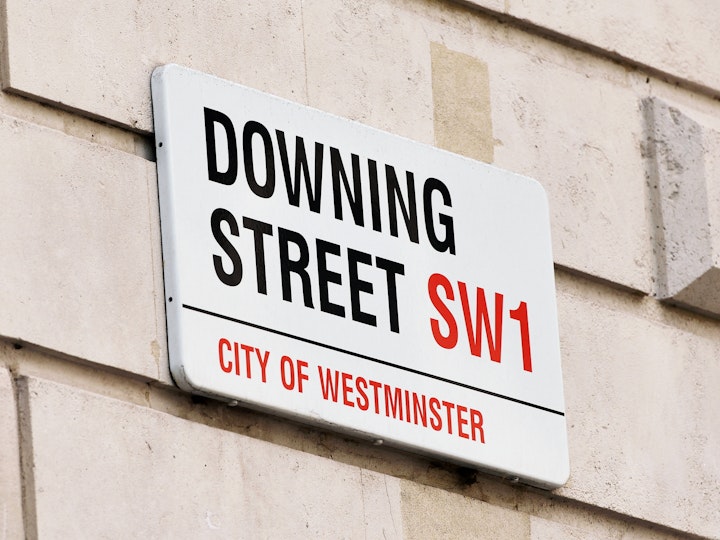Budget 2021: Key financial announcements explained
Dr Nikolaos Antypas summarises the key financial announcements made by the UK Chancellor during his Spring Budget 2021 speech.

The Spring Budget announcement by Chancellor Rishi Sunak delivered highly expected items and did not fail to surprise its already captivated audience.
The Chancellor’s plan focused on three axes. First, he echoed and extended support to the ailing participants in the economy, such as companies, employees, the self-employed, young people in need of training, as well as the unemployed and less fortunate. Second, he drafted long-term plans of improving the deteriorating state finances as a result of the pandemic. Finally, he announced initiatives to help the UK gain a place in the global economic stage in the post-Brexit era.
Regarding the first axis, the Chancellor reiterated the government’s goal of protecting employment by extending the furlough scheme, business grants, and self-employment support until June while gradually relaxing the measures as economic activity picks up over the summer. The government does well in helping maintain the existing corporate and business structures by offering a lifeline to the agents of economic activity; re-building is costlier than maintaining. This will allow for a swift economic uptick as the restrictions of the pandemic are relaxed.
Focusing on few of the measures, the Chancellor has also announced the extension of business rates holiday and VAT cuts until September, while there will still be discounted rates until April 2022. The government also introduced a new scheme of state-backed loans to businesses, mitigating liquidity issues due to continuous concerns of credit. Similarly, the Chancellor aimed at stimulating further the housing market by introducing state-backed mortgages for applicants able to provide only 5% deposits, while he further extended the stamp duty holiday until June in full and, then, in part until September.
Regarding to a return to fiscal discipline, the Chancellor suggested that any plans to increase tax receipts should take effect when economic recovery is well under way. In respect to that, he announced a corporate tax reform, aiming to increase corporate tax from 19% to 25% for effectively around 10% of corporations. The remaining companies will pay as low as 19% rates, with the rate increasing after the threshold of £50k in profits until it reaches the new 25% rate at the level of £250k in profits. The new scaled corporate tax structure aims at relieving companies that may have suffered the most during the pandemic, increasing tax receipts overall, and maintaining the most competitive tax regime among G7 countries.
The most surprising element in the revamped corporate tax policy is the “super tax deduction” of capital expenditure, where companies receive a tax relief of 130% of their capital expenditure. A company investing £10m in growing its activities will receive £13m deduction in taxable income, suggesting an immediate return of 30% on any invested capital. The radical measure is expected to lead to an avalanche of investments by companies who will try to capture a share of a recovering economy on the rise. The result will be increase in employment and economic output, which will further accelerate recovery in a virtuous circle fashion.
Finally, the Chancellor announced a series of measures aiming at improving the future prospects of Britain as a world-class market. The most noteworthy measures are the green growth initiative to finance environmentally-friendly investments and the free ports initiative, where selected port areas are subject to lower tax and duties. This measure will position eight geographical areas to be hot spots for economic growth in the years to come. A new immigration plan has also been drafted, allowing highly specialised and expert individuals to work in the UK without sponsorship. This will highlight the UK as an attractive destination for scientists and highly skilled individuals, which will encourage companies to increase their R&D activities domestically. Finally, the government showed a clear incentive to “upgrade” its labour force with the “Help to Grow” scheme, where individuals and companies will be subsidised for up to 90% of their cost in training employees in practical and management skills.
The aforementioned measures will take effect on different dates, therefore they contribute to the improvement in the outlook of the British economy at different stages of the recovery. The pace of the recovery, if predictions prove accurate, would be nothing short of monumental. The British economy, after contracting 10% in 2020, the worst in 100 years, is posed to grow by around 7.5% in 2021, the fastest pace in more than 50 years. After a deficit of £355bn (£394bn estimate) in 2020, a decrease in annual deficit will be most welcome. However, the deficit is expected to peak in three years’ time, due to the continuing strain of the current economic shock long after the pandemic subsides. The current vaccination plan seems to be a major factor in the roadmap of relaxing restrictions and opening up the country once again. We may find ourselves in a better position than expected at the end of the year, as it happened in 2020; the OBR has brought forward the predictions of economic activity to pre-pandemic levels to mid-2022, half a year earlier than previously estimated. Still, we should not be irrationally exuberant or complacent, as the crisis will probably leave us stronger than before, but not necessarily unscathed.



